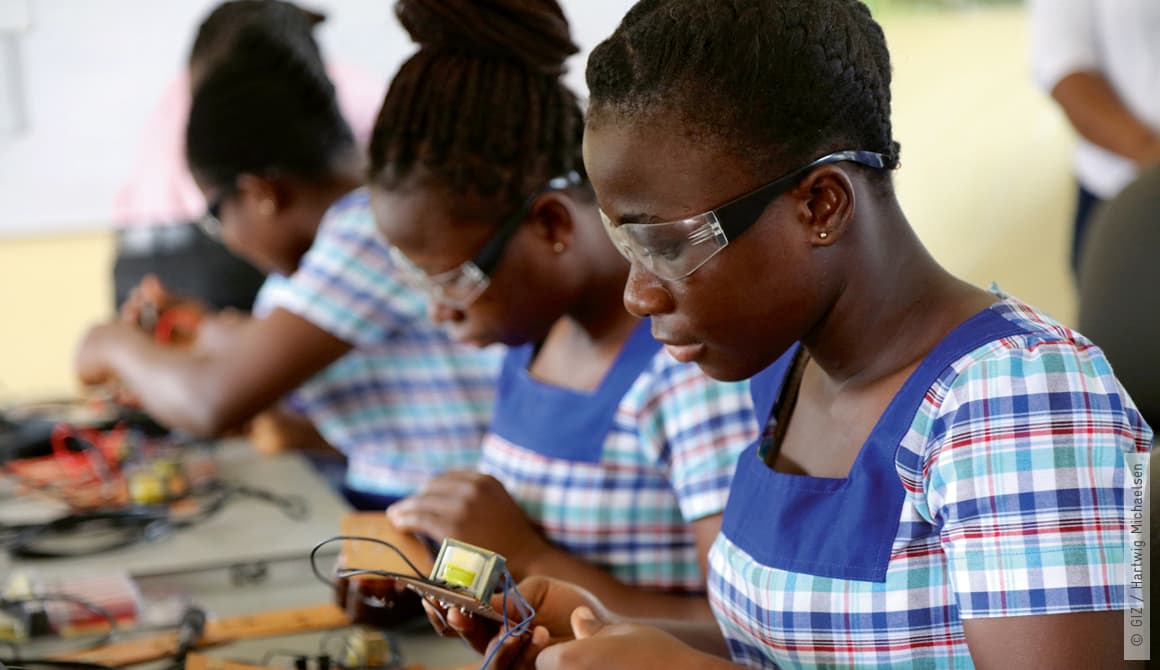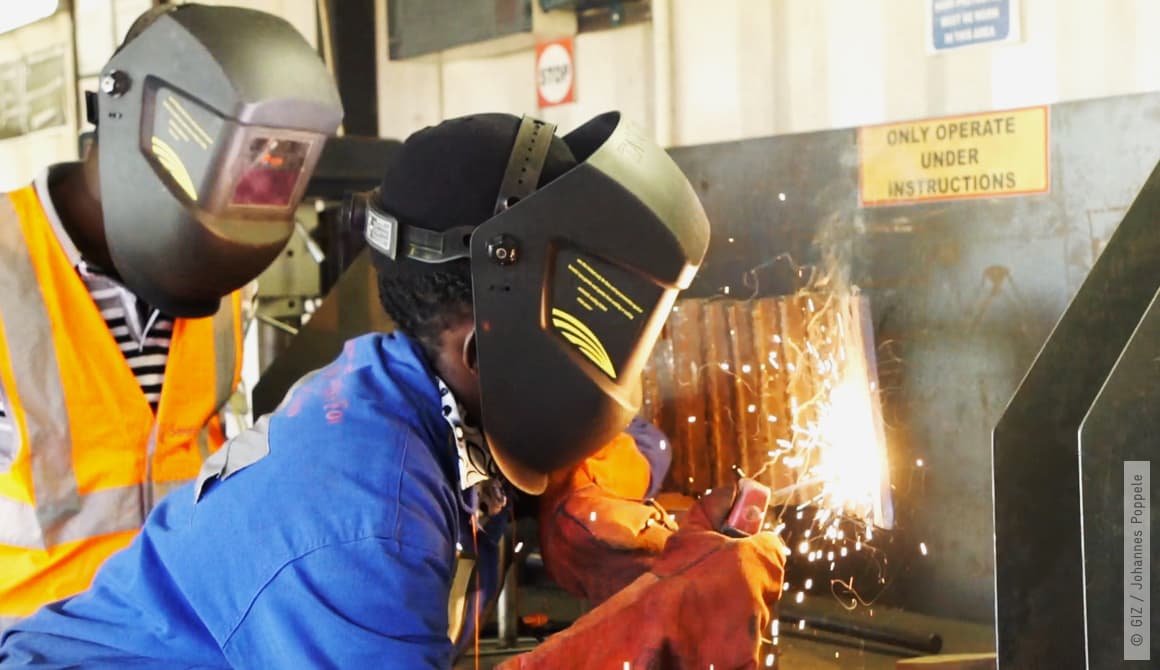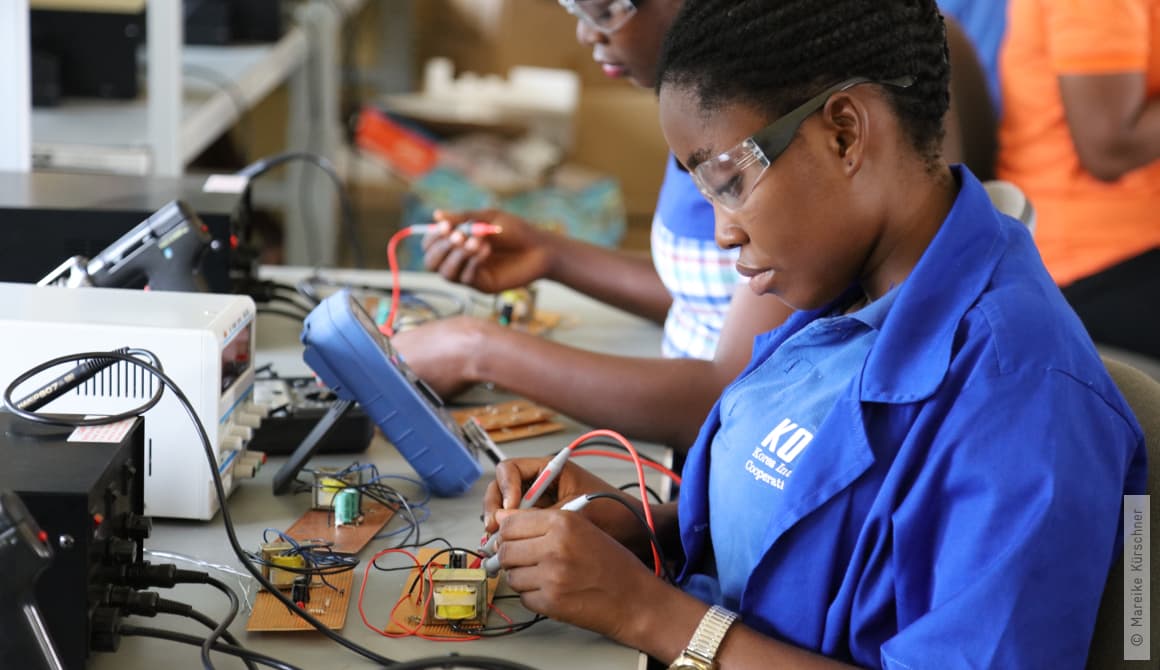TOWARDS A POSITIVE FUTURE AT HOME
The economy of sub-Saharan Africa is growing, as is the demand for labour, especially in the energy and resource sector. However, there is still not enough market-oriented training on offer, nor are there enough sustainable jobs to give young people genuine prospects of a viable long-term future in their home countries.

The Africa-wide Employment for Sustainable Development (E4D) programme is setting out to change that. Launched by BMZ and financed by the United Kingdom’s Department for International Development (DFID), the Norwegian Government, Royal Dutch Shell, the EU and other donors, the initiative is being implemented by GIZ in seven African countries and involves close public-private cooperation with over 70 international and African companies.
The common focus is on job creation and improving training opportunities in collaboration with private businesses and public-sector stakeholders.
PARTICULAR FOCUS ON WOMEN AND GIRLS
And so far things are looking good: by the end of 2017, over 8,000 people had joined the workforce, the incomes of almost 35,000 employees had been raised and working conditions for 10,000 people had been improved. GIZ and its project partners are developing new vocational training courses that will help even more, such as in solar technology and welding, and are revising job profiles and qualification standards so that they can apply to all branches of the economy. Particular attention is being paid to increasing opportunities for women and girls.
In Uganda, for instance, training programmes that GIZ has set up in partnership with a local provider are preparing young women to gain entry to male-dominated occupations – as technicians or welders, in the transport sector or construction, and in agriculture or the oil and gas industry. The certificates gained on completing the courses are internationally recognised, presenting trainees with multiple options abroad as well as at home.


MEETING INTERNATIONAL SAFETY AND ENVIRONMENTAL STANDARDS
GIZ is also advising 30 energy companies in Uganda on ways of systematically reducing the risk of accidents and health hazards and on introducing international safety and environmental standards – a necessary precondition for domestic companies if they intend to bid for international tenders.
